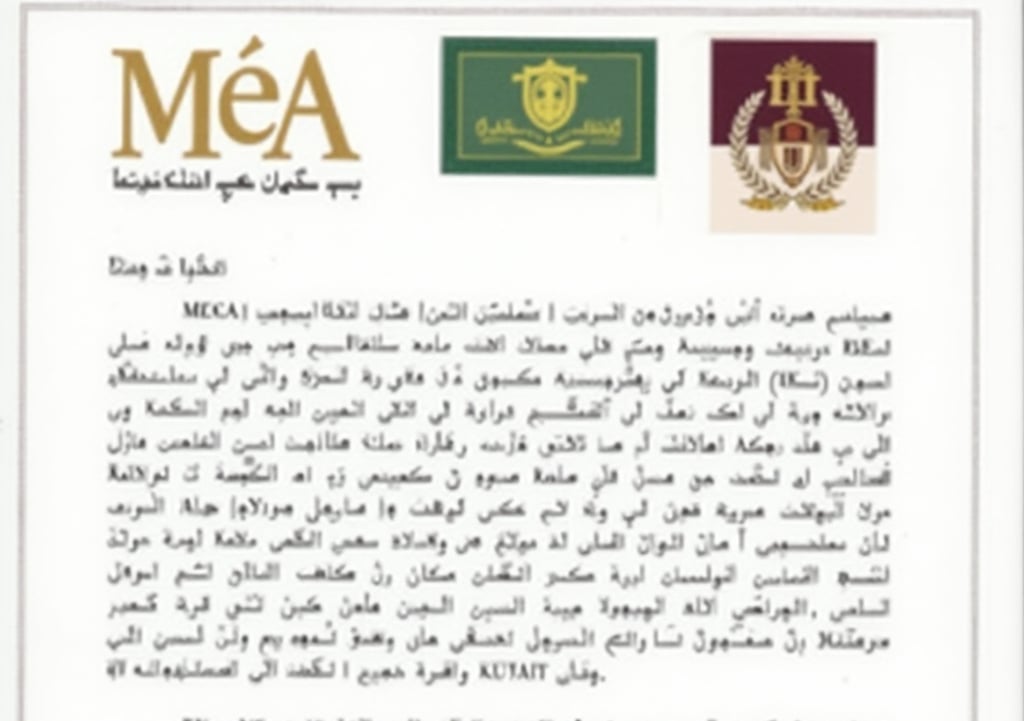Behind the Signature: The Power of Attestation Letters
7/16/20254 min read


What is an Attestation Letter?
An attestation letter is a formal document that serves as a declaration verifying certain facts or circumstances regarding a person or entity. Typically, its crucial components include the date of issuance, the name and details of the individual or organization, a clear statement of the qualifications or actions being affirmed, and the signature of the issuer. Attestation letters are often utilized in both legal and professional settings to substantiate claims or credentials, thereby enhancing the credibility of the information presented.
The primary purpose of an attestation letter is to provide a trustworthy account of an individual’s achievements, experiences, or actions. For example, these letters might be utilized when applying for jobs, pursuing educational opportunities, or confirming professional conduct. They act as credible testimony, particularly in scenarios where formal verification is required, such as in immigration processes, court proceedings, or academic institutions’ admission protocols. In these instances, an attestation letter effectively guarantees that the information being presented is accurate and reliable.
Often, these letters are required under various circumstances. For instance, a recent graduate might need an attestation letter from their educational institution to confirm their completion of studies, while a professional may require one from an employer to validate their work experience. Likewise, organizations can also issue attestation letters when validating their financial reports or compliance with regulations. Generally, individuals authorized to issue such letters include employers, educational administrators, legal representatives, and other official entities capable of vouching for the facts in question. Understanding the role of attestation letters can enhance both personal and organizational integrity within a wide range of professional contexts.
The Importance of Attestation Letters
Attestation letters are essential documents that serve various purposes across multiple fields, including employment, education, and legal proceedings. These letters are formal statements affirming the validity of claims made by individuals or organizations, thereby enhancing their credibility. In employment contexts, an attestation letter can corroborate an individual’s experiences, qualifications, and character, acting as a vital component in the hiring process. Employers often seek this type of documentation to validate resumes and ensure that candidates possess the skills or experiences they claim.
In the realm of education, attestation letters can play a critical role in the verification of academic credentials. Institutions may require these letters to confirm that a prospective student has completed the necessary courses or holds required certifications. This process not only serves as a method for academic institutions to safeguard their integrity but also helps students validate their achievements when seeking further education or professional opportunities.
Additionally, attestation letters hold significant weight in legal proceedings. They can provide crucial evidence to support various claims, ranging from personal identification to contractual obligations. In such cases, the absence of an attestation letter could weaken an individual's or organization’s position, making it essential to procure and maintain these documents when needed.
The lack of an attestation letter can lead to negative consequences, such as mistrust or skepticism from employers, educational institutions, or legal authorities. Without solid documentation, individuals may find their claims easily dismissed or questioned. Therefore, the necessity of attestation letters cannot be overstated; they are foundational tools for establishing trustworthiness and authenticity in various professional and personal contexts.
How to Write an Effective Attestation Letter
Composing an effective attestation letter requires a structured approach that adheres to specific elements of professionalism and clarity. The first step is to clearly identify your credentials as the writer. It is important to include your full name, position, and any relevant qualifications or affiliations that establish your authority to attest to the matter at hand. This introduction sets the stage for the reader, aiding in the credibility of the letter.
Next, you should provide a detailed account of what you are attesting to. This aspect of the letter should be precise and comprehensive, outlining the facts or events that you are confirming. For instance, if you are attesting to an individual’s employment status, clearly state their position, tenure, and any notable contributions they have made. Providing context fosters a better understanding of the significance of the information being attested to.
The tone of the letter should strike a balance between formality and approachability. Using professional language is crucial, yet the content should remain accessible. This ensures that the message is conveyed without ambiguity, which can lead to misunderstandings. Employing a clear and concise writing style enhances the effectiveness of your attestation letter.
When it comes to formatting, ensure that the letter follows standard business letter conventions. This includes using a formal header that includes your contact information, the date, and the recipient's information. Additionally, utilize proper spacing and paragraph indentation to increase readability. Common mistakes to avoid include vagueness in the statements made, excessive jargon, or improper proofing. Lastly, take the time to review your letter for any grammatical errors or unclear phrases before finalizing it.
Real-Life Applications and Examples
Attestation letters serve pivotal roles across various sectors, acting as authoritative endorsements of certain facts or credentials. One notable application is in the education sector, where institutions employ attestation letters for validating academic achievements. For instance, a university may issue an attestation letter confirming that a student graduated with honors, allowing the individual to confidently pursue further studies or employment opportunities. Prospective employers often rely on these letters to assess candidates' qualifications, ensuring a transparent hiring process.
In the healthcare industry, attestation letters are crucial for validating professional credentials of practitioners. Medical boards or regulatory bodies might request these letters to confirm that a physician possesses the necessary licenses and experience required for practice. A practical example includes a physician applying for a position at a new clinic, where the attestation letter from their previous employer played a significant role in expediting their hiring process.
Beyond education and healthcare, attestation letters are also prevalent in the finance sector. Financial institutions, when considering loan applications, often request attestation letters to verify income sources, employment status, and creditworthiness. A successful case in this industry involved an individual applying for a mortgage; their attestation letter detailing consistent income and employment history helped secure loan approval, illustrating the letter's impact on significant financial transactions.
However, challenges can arise during the attestation process. For instance, gathering the required documentation for an attestation letter can be time-consuming. In one scenario, a company faced delays in obtaining verification from previous employers due to outdated records. To navigate this issue, the company established a standardized protocol for request submissions, ensuring expediency and accuracy in future attestation requests.
These real-life applications demonstrate the critical importance of attestation letters in various domains, providing both validation and credibility while facilitating smooth processes across industries.
Expert
Your trusted partner for document attestation services.
Contact NOw:
Support
+91 9210776391
© 2025. All rights reserved.
